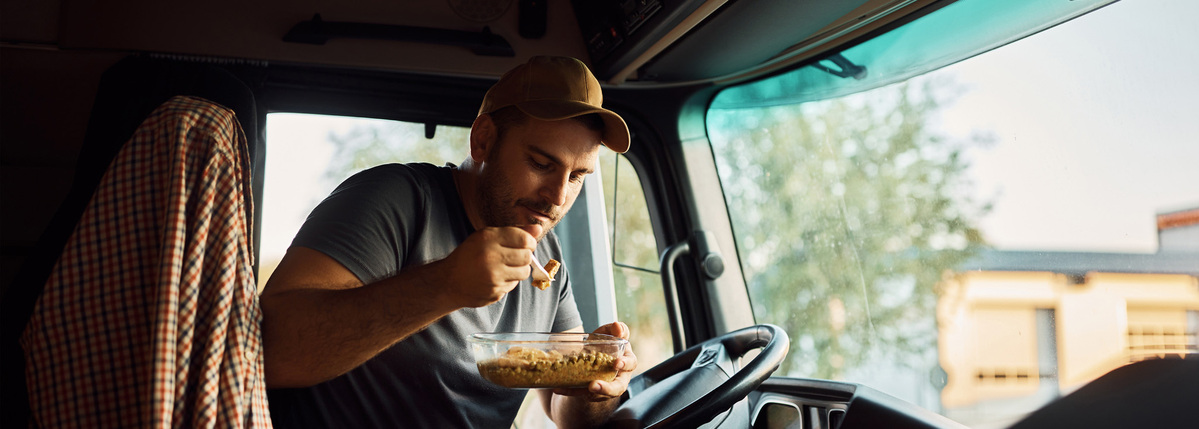Relationships and Type 2 Diabetes
Written by: Eugenia Araiza, CDE Nutritionist
3 minute read
January 16, 2020
When you live as a couple and either of your lives with diabetes, things can be a bit different. Here's some advice to manage diabetes in your relationship.
We all need love and a lot of us aspire to have and experience romantic love. But sometimes, being in a relationship when you have diabetes has its own unique challenges. We discuss three different ways diabetes can impact our dating lives.
Opening Up About Your Diabetes
The first is when the person with diabetes (PWD) has issues with their care and their partner worries and doesn’t know what to do. This inevitably leads to conflicts and misunderstandings between the couple. The one who lives with diabetes may feel overwhelmed by their partner’s persistence about their care, and on occasions, they may prefer to not mention anything about how they’re managing diabetes. They may also get upset if asked about something related to their diabetes. Sometimes it becomes a taboo subject because it may create anger and discomfort.
What to do you if you’re having trouble being open about your diabetes to your partner:
- Ask yourself if the issue is with the other person or a reflection of your own thoughts on diabetes care. Are you afraid of trusting your partner with something personal such as the ups and downs of diabetes or fear they may be burdened?
- Remember you aren’t a mind-reader. You may feel your diabetes could be a burden on your significant other, but there’s no way to know this unless you talk to them about how diabetes impacts your life and let them know what kind of support you need.
- Remember, your diabetes is still your responsibility. Keep in mind that no matter what, you’re responsible for your care no matter who you’re dating.
- Ask them what they know about type 2 diabetes. They may know someone with the disease. If they don’t, know they know you and just like we mentioned above, you can share how type 2 diabetes (T2D) factors into your life.
- Talk to a therapist. Before you make a move, you can speak with a therapist on how to approach talking about type 2 diabetes with your significant other.
Feeling Misunderstood or Neglected by Your Partner
The second is the opposite case when the PWD feels neglected by their partner, or worse, that their partner is trying to sabotage their routine. Diabetes care is often regimented and requires discipline to manage well. So, it can hurt when your partner fails to acknowledge that. You may not need your partner to understand the ins and outs of living with diabetes (but kudos and bonus points if they’re interested), but you do need them to respect your lifestyle with it.
If you’ve never discussed living with diabetes with your significant other, here are some tips that can help:
- Talk about your medication and devices. What medicines do you have to take, why is it important. Also, discuss what devices you use.
- Discuss your diet. Everyone’s diet with diabetes is different. Make it clear what you like to eat and the ones you prefer to avoid.
- Bring up emotional/mental health. Diabetes distress is real and sometimes, living with diabetes can feel lonely. We’re not always in the mood to care for ourselves when diabetes brings us down. It can alter our mood.
- Know what kind of support you need. Discuss what kind of support you have from your family, healthcare team and how you’d like your significant other to support you. This helps set boundaries and makes communication easier.
- Mention emergencies. Tell the person you’re dating what to do if you’re in emergency situations such as extremely high or low blood sugars.
If your partner can’t respect the boundaries you set and the life you live with diabetes, then you may want to consider letting that person go and finding someone who will. Your health is important and a partner shouldn’t make it harder to maintain. However, prior to deciding to end a relationship, you can also try couple’s counseling to improve the relationship.
Communication is Key in a Relationship
The third case is ideal—when you and your significant other are on the same page and act as a team to keep your relationship alive. Both are committed to supporting each other’s health goals and are great at communicating what each one needs. As a PWD, you can freely communicate what support you need when you’re having a bad day with diabetes, or if you just need space.
As in any relationship, boundaries, communication, respect and of course, love, are all important to making it work. Diabetes can be a burden on our personal lives, but it’s so much easier to shoulder when we know we have loved ones who can help us move through its ups and downs.

Author
Eugenia Araiza, CDE Nutritionist
Eugenia has a degree in nutrition and is a diabetes educator. She was diagnosed with type 1 diabetes (T1D) 23 years ago. She currently works at https://www.facebook.com/healthydiabetesmx/ https://www.healthydiabetes.mx She enjoys studying and helping people manage their diabetes.
Related Resources

We’re inundated with messaging about “mindfulness” in our culture. Sometimes it seems to refer to...
Read more

Type 2 diabetes is highly prevalent in Native communities across the United States. While the...
Read more

The ability to make your own hours as a truck or delivery driver has made...
Read more

